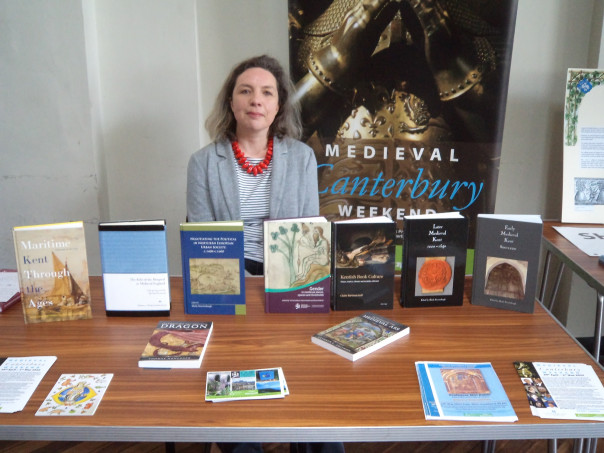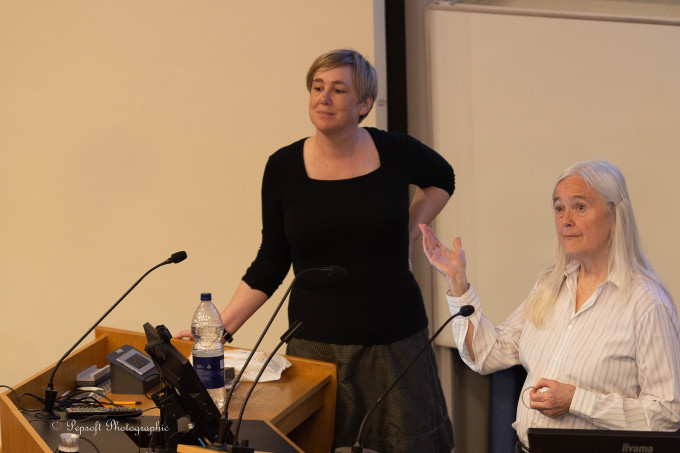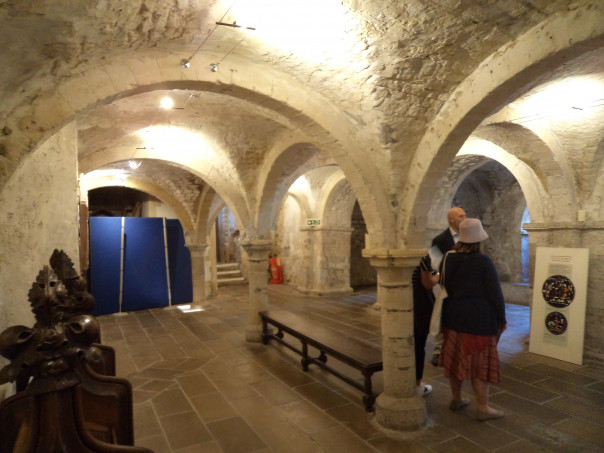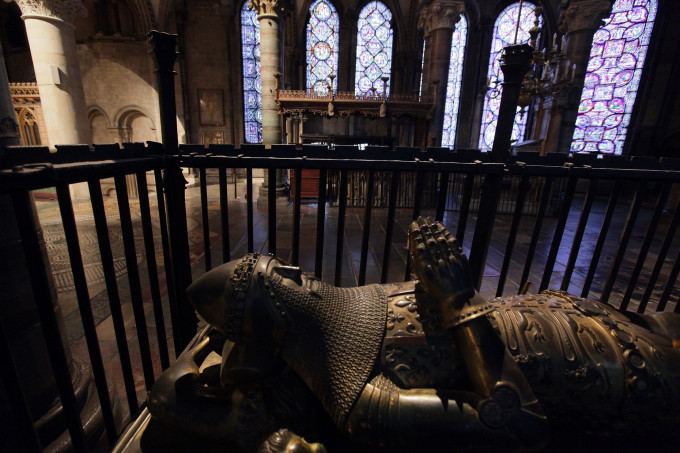Next week is going to be very busy because not only is it the first week of term but we have the Nightingale Lecture on Tuesday evening, the Aphra Behn project launch on Wednesday evening and the ‘Institutional Care in Kent’ conference on Saturday 30 September. Consequently, this week has been a hive of activity trying to get all of this into place.
However, before I reiterate these upcoming exciting events, I thought I would highlight a couple of other events in October. Firstly, as usual we are working with the Friends of Canterbury Archaeological Trust and Dr Ellie Williams has organised the October lecture to be given by one of her colleagues at CCCU. Consequently, on Thursday 5 October Dr Lindsey Büster will speak on ‘Commios: Iron Age Britons and their continental neighbours’ at 7pm in Newton Ng07. As Lindsey says: ‘Recent breakthroughs in isotope and ancient DNA analysis have opened new vistas for understanding the diversity, mobility, structure and social dynamics of past communities. If we are fully to grasp the dynamism, subtlety and complexity of the human past the emerging potential of these techniques must be integrated with cultural archaeological analyses, drawing on approaches from the humanities.
COMMIOS, a five-year ERC-funded collaboration between the University of York, the Reich Lan at Harvard University, the British Geological Survey and the AMS radiocarbon dating lab SUERC (University of Glasgow), provides a ground-breaking interdisciplinary framework within which these methods will be integrated on an unprecedented scale to provide a radically new vision of past societies. This talk will present the results of some of our latest research (from large scale migrations to kinship structures), with a focus on the cosmopolitan communities of later prehistoric Kent.’ This lecture is open to all and is free to students, while for visitors and Friends the usual donations are asked for towards the work of CAT.

Then on Saturday 21 October the Medway History Showcase will take place at the Royal Engineers Museum, Gillingham where there will benumerous stalls from history and heritage organisationswhere visitors will be able to find out about the many groups active in the Medway area and more broadly in Kent. As at these previous events, there will be a programme of talks throughout the day and this time the theme is industry. Booking will be available shortly for this free event and if you want to get a flavour of these vibrant history days, please see: https://blogs.canterbury.ac.uk/kenthistory/the-first-of-the-lost-blogs/ which shows the one at Dover last June.
Very briefly for next week the Annual Nightingale Memorial Lecture with the Brook Rural Museum will be in Old Sessions House at CCCU in Canterbury on Tuesday 26 September at 7pm (wine reception from 6.30pm, sponsored by the Graduate College). No need to book and please do come along. There will be retiring collection for the work of the Museum and to support the Ian Coulson Memorial Postgraduate Award fund aiding postgraduates studying Kent history. This year our distinguished speaker is Dr Adam Chapman whose talk is entitled ‘Medieval Landscapes in the Victoria County History: from text, to pictures, to text again’. For more details, see: https://blogs.canterbury.ac.uk/kenthistory/august-at-dover-faversham-and-rochester-plus-more-in-september/
The following evening it will be the launch of the AHRC-funded Aphra Behn project where the lead at CCCU is Dr Astrid Stilma. Please do come to find out about this fascinating woman and for more details and to book this free event, please see: https://www.canterbury.ac.uk/events/2023/canterburys-aphra-behn-launch-event

Our third event next week is the one-day conference on Saturday 30 September, and I’m delighted to be able to announce that as well as Peter Joyce, Chris Rowley, Jane Joyce and Dr Sheila Sweetinburgh we have a fifth speaker: Kara Grieg from the University of Kent whose research focuses on institutional care in Kent in the early twentieth century. Entitled ‘Institutional Care through the Ages in Kent’, this conference will take place in Powell Lecture Theatre, Pg09 (CT1 1QU) beginning at 10.30am and due to end at 4.30pm.
As the speakers will show, institutional care of the poor, infirm and disadvantaged in society has a very long history in Kent, starting from some if not the earliest hospitals in England up to the present day. For as is often said, the type and level of such care can tell us a great deal about society more broadly. Moreover, this conference will highlight new research that is taking place on different types of institutional care in Kent, from hospitals of different kinds to almshouses and workhouses, thereby providing insights concerning the lives of those inside and outside their gates.

This free conference is open to all, please book at https://www.trybooking.co.uk/CQCF but if you have any difficulties, please email: sheila.sweetinburgh@canterbury.ac.uk for assistance. Please note, the Touchdown café nearby should be open at lunchtime and at the afternoon break. We shall be delighted to see you there.
Finally for this short blog this week, I thought I would mention a couple of other speakers who will be at the Medieval Canterbury Weekend 2024 ie Friday 26 April to Sunday 28 April. Asalways, we will be bringing you a mix of new lecturers as well as speakers who have been before as they bring you the fruits of their recent research in a lively and accessible way. Among the former will be Professor Chris Briggs and Dr Susan Edgington, thereby providing talks ranging from an examination of the household possessions of late medieval Kentish rebels to topics associated with the First Crusade and the wives of King Baldwin the First. While from among the latter and moving even further back in time, Dr Marc Morris will explore the myth and the reality of the Anglo-Saxons and whether it really was a golden age between 450 and 1066.

It is also great to welcome back Professor Mark Bailey who in keeping with his research into the lives of ordinary people after the Black Death will explore what we know about women’s working lives after this international catastrophe. A topic that is one of the liveliest current debates in social history, for was it really a ‘Golden Age’? Looking at medieval women from a different perspective, it is similarly lovely to have Dr Janina Ramirez again and she will be examining the lives of a range of women based on her recent research now published in her new book Femina. This allows her to re-examine extraordinary women like Hildegard of Bingen, to cast new light on over-written females like Aethelflaed and King Jadwiga, and to find lost individuals like the Loftus Princess and the Birka Warrior Woman.
Moreover, these are just a few of the over twenty sessions that will be on offer during the Weekend. If this sounds of interest, please do save the dates and more details and the full programme will be available soon. So as we start the new academic year, we at the CKHH hope to see some of you next week.
 Centre for Kent History and Heritage
Centre for Kent History and Heritage Sheila Sweetinburgh
Sheila Sweetinburgh 1619
1619

